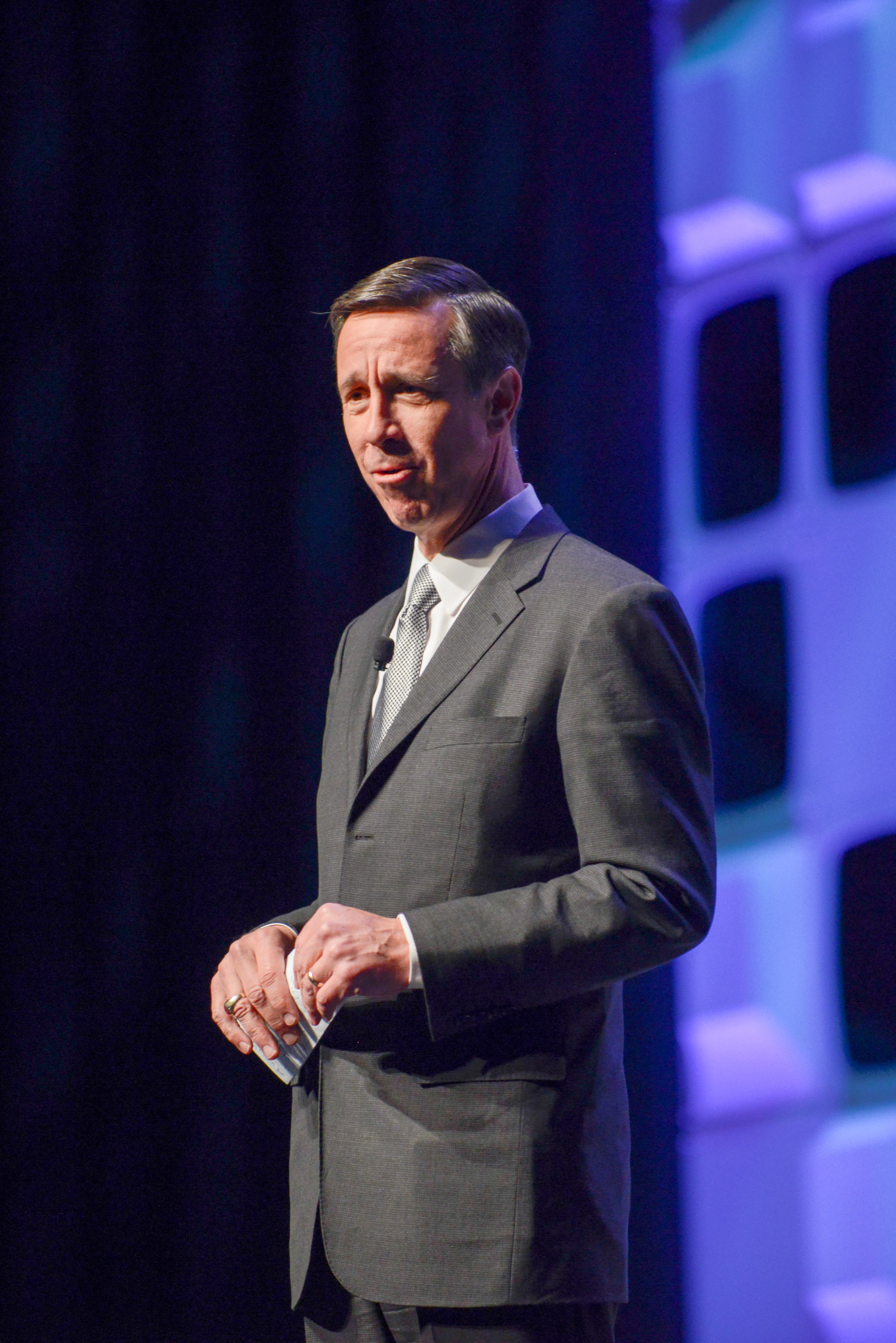LOS ANGELES—When Marriott International CEO Arne Sorenson speaks, the crowd listens. This was the case at this year's ALIS conference, when he delivered a short talk entitled “Travel Tomorrow and in 2030.” But Sorenson drew from his past to drive home his point that travel is no longer a commodity but an experience, something ephemeral that still lasts a lifetime, filtering and clinging to someone’s insides like residue to a cast iron pan.
At least that’s how Sorenson made it sound when he reminisced over a 1979 trip he took to Scotland—a story, he said, that “is foundational to me.”
Like many a Scottish yarn it included imbibing, but beyond that, Sorenson’s story was personal and will stick with him until his last breath. Isn’t that what a memorable experience should do? “There is a shift toward experience over things—and that plays well for our space,” Sorenson said. “In fact, it’s never been a more exciting time.”
And new technology and social media are helping drive travel, making it even more enduring. Consider that Snapchat, Facebook and Instagram did not exist in 1979; one, by necessity, documented travel in a journal or on a Polaroid. “So, the future is optimistic,” Sorenson said.
Still, there are obstacles; namely, the process of travel. While Sorenson noted that “an authentic welcome is something we need to deliver,” getting to the hotel or resort oftentimes can be an odyssey of monstrous proportion.

Credit: Robert Rooks Photography
Airports and airplanes rarely are a source of calm. “It’s customers’ biggest frustration,” Sorenson said. He gets it, too. “I traveled 200 nights last year,” he said, “and it felt like my bag was searched 200 times.”
Airports, certainly, have been in the news of late—sites of mass protests triggered by President Trump’s now-suspended travel ban, but one he has promised to not give up on. Sorenson bemoans the hardship of global travel. He should know; he was born in and grew up in Tokyo. “Nothing has changed,” he said in reference to applying for visas and passports. “We need to get to a place where technology can be used for the security process and on those only who are a risk. We need to simplify travel.”
Technology is allowing travelers control and ease that wasn’t available decades ago. Sorenson noted a service such as keyless entry, which, he said, will become ubiquitous, similar to the acceptance of electronic boarding passes. Still, while technology can make travel easier, Sorenson continues to promulgate the idea of experience over all else—something local, something memorable, something forever. “Folks want an experience like I had in Scotland, in 1979,” he said.
